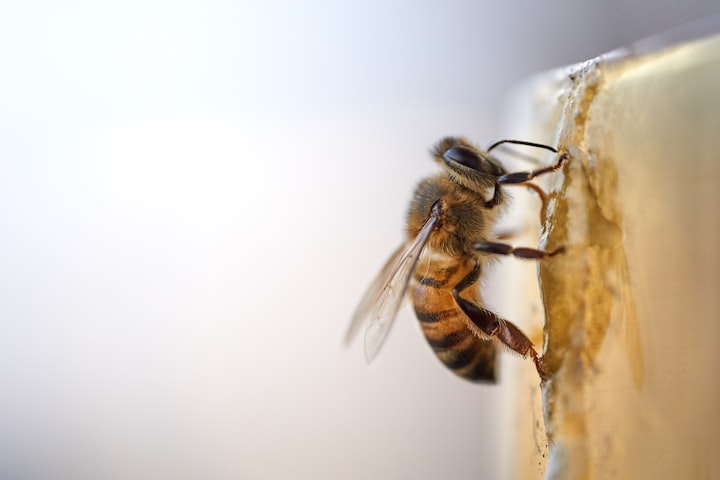
bees are incredibly important for life on Earth. They play a crucial role in pollinating a wide variety of plants, including many of the fruits, vegetables, and nuts that make up a significant portion of human diets. Here are some key reasons why bees are important:
Pollination: Bees are one of the most effective pollinators in the natural world. They transfer pollen from the male parts (anthers) of flowers to the female parts (stigmas), enabling the fertilization and reproduction of many flowering plants. This process is essential for the production of fruits, vegetables, and nuts.
Food Production: A large percentage of the world's food crops depend on bee pollination. This includes staples like apples, strawberries, almonds, and many more. Without bees, the yields of these crops would be significantly reduced, leading to food scarcity and higher food prices.
Biodiversity: Bees also play a role in pollinating wild plants, which contributes to biodiversity and the health of ecosystems. Many animals, including birds and mammals, rely on these plants for food and habitat.
Economic Impact: The economic value of bee pollination is enormous. It's estimated that bees contribute billions of dollars to the global economy through their role in crop production.
Medicinal Plants: Bees also help pollinate plants used for medicinal purposes, which are important for traditional and modern medicine.
Honey and Other Products: Bees produce honey, beeswax, propolis, and royal jelly, which have various uses for humans, from food and cosmetics to medicinal and industrial applications.
However, bees face numerous threats, including habitat loss, pesticide exposure, diseases, and climate change, which have led to declining bee populations in many parts of the world. This decline in bee populations could have far-reaching consequences for ecosystems, food security, and the economy. Therefore, it is essential to take measures to protect and conserve bees and their habitats to ensure the continued well-being of our planet and its inhabitants.
Life without bees would be significantly different and challenging for several reasons:
Food Scarcity: Bees are key pollinators of many fruits, vegetables, nuts, and other crops. Without bees, the production of these crops would decline dramatically. This would lead to food scarcity, higher prices for these foods, and reduced dietary diversity.
Economic Impact: The agricultural sector would suffer severe economic losses. Many farmers rely on bee pollination for their livelihoods. The decline in crop yields would result in financial losses for both farmers and the agricultural industry.
Biodiversity Loss: Bees are not only important for agriculture but also for wild plant species. Many plants depend on bees for pollination, and their inability to reproduce could lead to a decline in biodiversity. This, in turn, would affect animals that rely on these plants for food and habitat.
Medicinal and Herbal Plants: Bees play a role in pollinating medicinal and herbal plants. The loss of bee pollination could affect the availability of these plants, which are important for traditional and modern medicine.
Honey and Bee Products: The honey and bee products industry would cease to exist without bees. Honey, beeswax, propolis, and royal jelly have various uses, from food and cosmetics to medicinal and industrial applications.
Ecosystem Disruption: Bees are a critical part of ecosystems. Their absence could disrupt the balance of various ecosystems, affecting other organisms in the food chain and potentially leading to ecological imbalances.
Increased Reliance on Other Pollinators: In the absence of bees, other pollinators like butterflies, moths, bats, and some birds might become more critical. However, these species may not be as efficient or adaptable as bees, potentially leading to challenges in maintaining pollination services.
Efforts are being made to address the threats facing bee populations, including the use of sustainable farming practices, reducing pesticide exposure, and creating pollinator-friendly habitats. These measures are essential to ensure the continued well-being of both bees and human society. Life without bees would be much more challenging, highlighting the importance of conserving and protecting these vital pollinators.
About the Creator
moha jone
I like science - fiction -- fantasy - adventure and I enjoy mystery






Comments
There are no comments for this story
Be the first to respond and start the conversation.